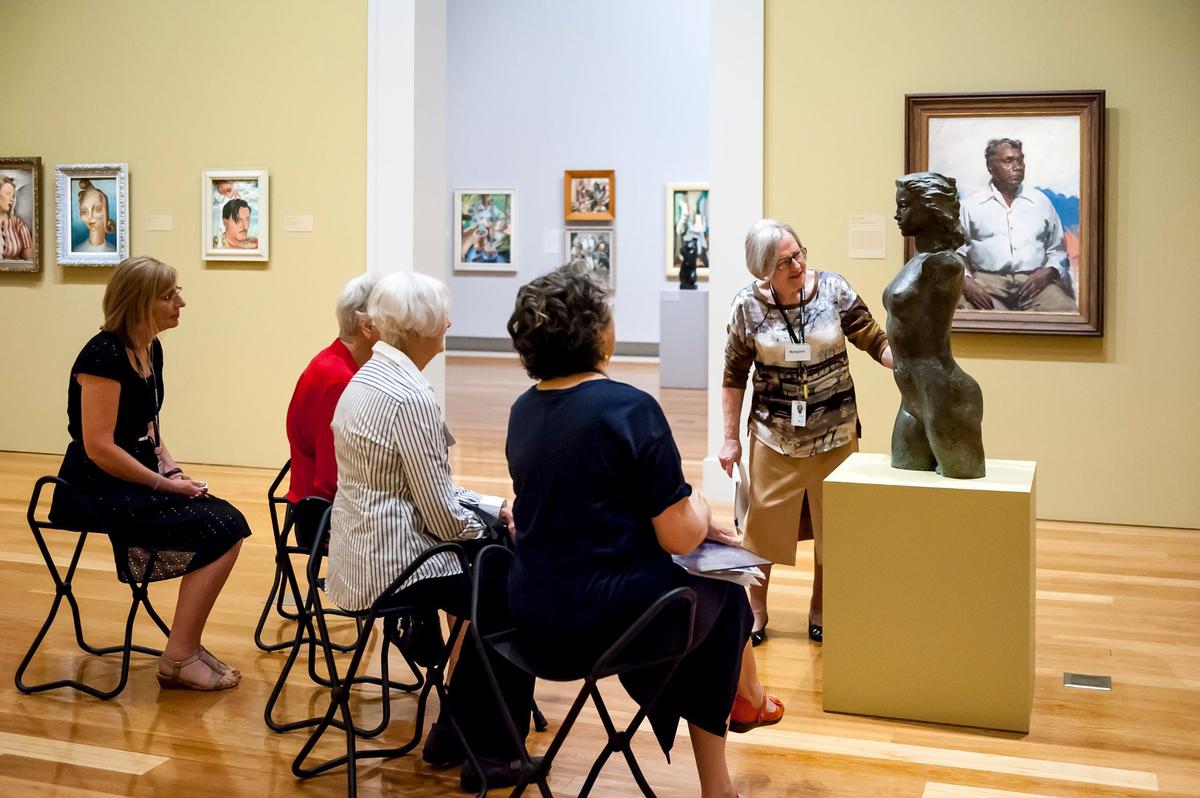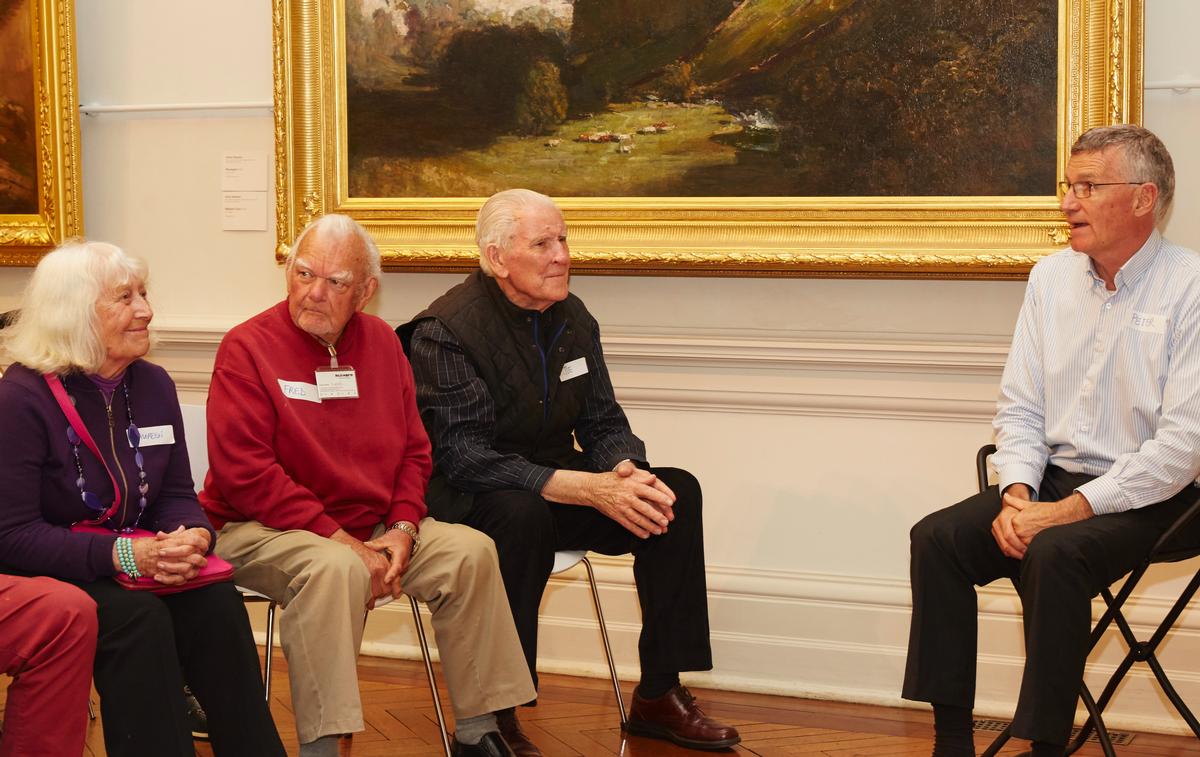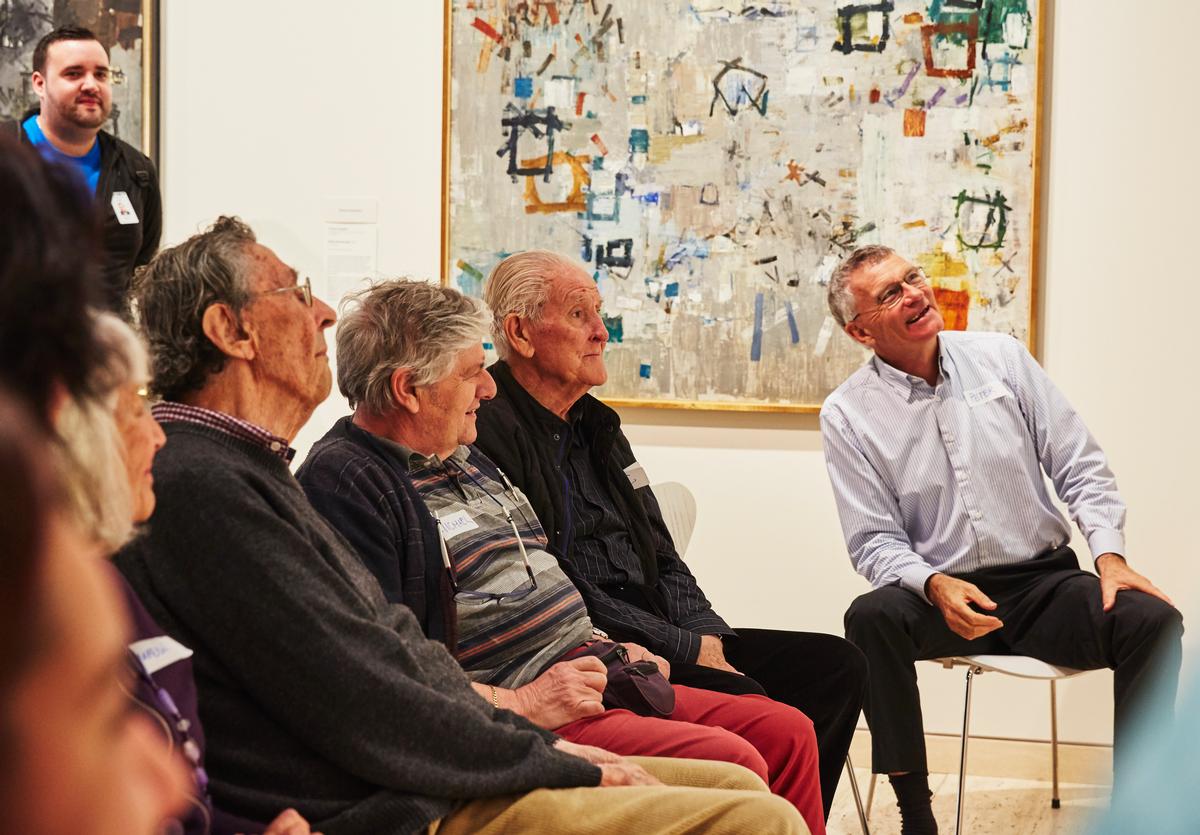see all jobs
Art viewings help alleviate anxiety in dementia sufferers, study finds
New research has found that viewing art in a gallery setting is highly beneficial for people suffering with Dementia, creating a heightened sense of joy and alleviating anxiety.
The newly-published study from Australia’s art gallery of New South Wales (AGNSW), says that visiting a gallery and looking at art can trigger noticeable changes in behaviour, mood, and cognitive and physical functioning for dementia patients.
The study, Arts engagement for people with dementia, was conducted by Dr Gail Kenning PhD of the University of Technology in Sydney.
Commissioned by the gallery in 2015, Dr Kenning’s findings include both qualitative and quantitative research, and are supported by Alzheimer’s Australia NSW which said the data provides a valuable evidence-base for the outcomes of such programming.
In the study, a number of iconic Australian masterpieces, works from international touring exhibitions, award-winning works from annual exhibitions and a collection of ‘audience favourites’ were selected, and shown to 21 dementia sufferers. Additionally, a group of participants and their family members and caregivers completed questionnaires, with their responses added to the research.
Three key findings were identified by the research – achieving normalcy, context and social scaffolding.
Normalcy in the context of a dementia patient was achieved by taking into account differences in ability, neural diversity, and social and cultural backgrounds. The findings showed that AGNSW’s access programs are flexible and adaptive, suitable to a wide range of conditions and abilities, providing varied experiences for “in the moment” pleasure, contributing to wellbeing.
The overall importance of context was also identified, with visits to AGNSW by dementia sufferers impacted by “operational matters” such as travel availability of seating in front of works of art, noise levels, and a heightened attention to these areas by experienced members of staff to create a positive programme.
Finally, social scaffolding recognises the impact of a dementia patient’s support framework, with a relaxed environment, interaction that models normalcy and the creation of an inclusive environment helping to achieve greater understanding. According to the study “It was evident that relationships between all stakeholders (gallery staff, care staff and family members) are not only professional but mutually supportive, giving the attendees the best possible experience.”
“While dementia impacts cognitive and physical functioning and memory, consciousness and emotions remain intact,” said Dr Kenning. “This means people living with dementia show affective responses and can experience the pleasure of looking at and talking about art.
“This study did not focus on memory, and whether people living with dementia remembered their engagement with art, but recognised the positive impact of ‘in the moment’ pleasure of experiencing art and of feeling valued, supported, acknowledged, and challenged. This experience of pleasure impacted people with dementia as well as carers and family members.”
More News
- News by sector (all)
- All news
- Fitness
- Personal trainer
- Sport
- Spa
- Swimming
- Hospitality
- Entertainment & Gaming
- Commercial Leisure
- Property
- Architecture
- Design
- Tourism
- Travel
- Attractions
- Theme & Water Parks
- Arts & Culture
- Heritage & Museums
- Parks & Countryside
- Sales & Marketing
- Public Sector
- Training
- People
- Executive
- Apprenticeships
- Suppliers


















































